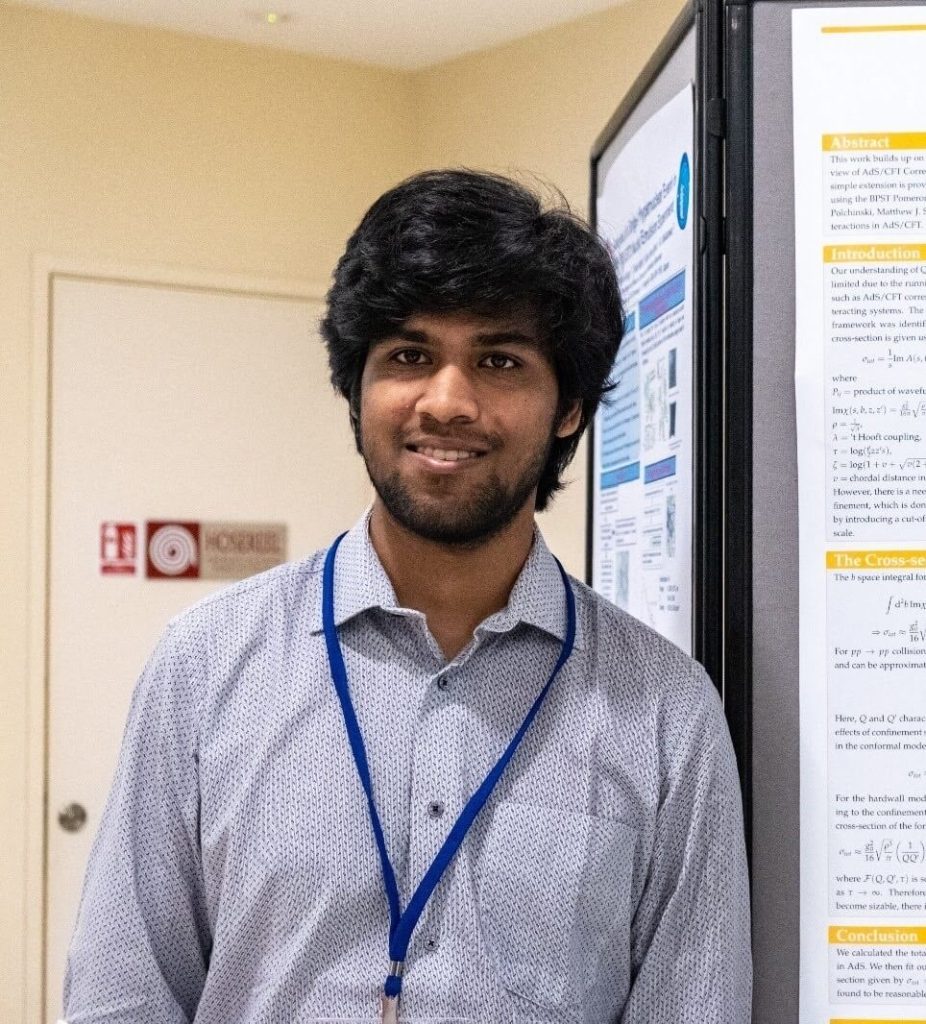Research and collaborative experience of high energy physics phenomenology group
NUS graduate students in high energy physics frequently participate in overseas collaborations with a generous NUS research scholarship. I had the privilege to visit Brown University as a Visiting Research Fellow and continue my work with our collaborators there. I work with Conformal Field Theories and related dualities to study the conformal limit of Quantum Chromodynamics (QCD) by modelling the behaviour of experimental markers such as proton structure functions and charged particle multiplicities.
Our high energy physics group was particularly excited about this year’s Nobel Prize announcement. Besides contributions to the study of disorder and fluctuations in physical systems, one of Prof. Giorgio Parisi’s seminal works on parton density evolution is the basis of studying how the strong force affects particle interactions at high energy colliders. It is fundamental to our group’s research in comprehending the internal structure of the proton and aspects of soft hadrons physics such as multiparticle production dynamics.
Pulkit Agarwal

My research in high energy QCD phenomenology involves building of models and statistical methods to better our understanding of fundamental physical interactions. To perform this effectively, numerical techniques including optimization, data preparation and “cleaning” are employed in the process of using the models to describe data. All of these are highly transferable skills in any modern workplace that largely involves the use of artificial intelligence and data science.
With the NUS research scholarship, I was fortunate to be given the opportunity to work at CERN (the European Organization for Nuclear Research) as part of my PhD studies. It brought me to the forefront of high energy research and I found myself surrounded by highly brilliant students and researchers. Our NUS group was also invited by a Polish high energy physics group to investigate high energy hadron multiplicity distributions in which I have the privilege to collaborate in three international publications on modified combinant analysis.
Ang Han Wei


As a PhD research scholar in high energy physics, I perform data analysis and stochastic model building on data from the CMS (Compact Muon Solenoid) experiment at CERN. Specifically, I investigate QCD intermittency, multifractal and correlation signals in the Large Hadron Collider data. I also had the privilege to carry out my research at CERN, where I had the chance to work with a community of passionate scientists at the forefront of physics. It was a very inspiring and special experience for me.
Phenomenological and computing work naturally lend themselves to building tech-related skills. Independence, collaboration, model building, understanding complex data, big data processing and data visualisation are just some examples that are highly sought after in the tech fields. These open doors to career paths such as data science and software engineering.
Ong Zongjin
